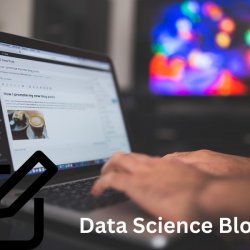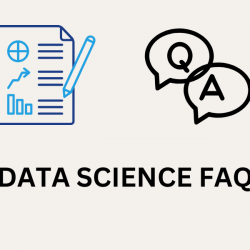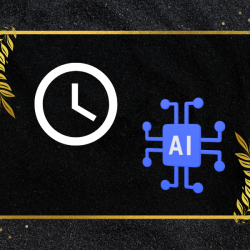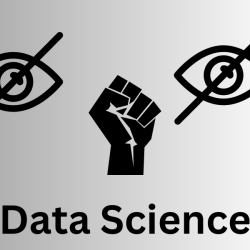Data Science for Social Good: How to Make a Positive Impact with Data


Data Science for Social Good: How to Make a Positive Impact with Data
Introduction
Data science has the potential to provide meaningful, positive impacts on our society. From understanding individual needs and helping people in need to leveraging technology to make a real world difference, it is evident that data science can be an invaluable tool in making a difference.
Using data science for social good requires an understanding of the need or issue at hand. Data analysts must use data gathering and analysis to identify potential solutions to these issues. Through this process, data scientists are able to take raw information and visualize the bigger picture in order to see how their findings can affect society as a whole.
Once the need is identified, it is important for data scientists to leverage current technology and tools in order to maximize impact. This could include utilizing machine learning algorithms or AI predictive analytics in order to accurately assess potential outcomes and determine what solutions would be most successful. It is also important for analysts to think outside of the box when seeking solutions as there may be new or innovative ways of approaching a problem that have yet been explored.
Data science for social good can have powerful implications if done correctly. Realworld applications of this type of work have led to significant improvements in many areas, such as reduced poverty rates, improved public health conditions, increased access to education opportunities, and more equitable economic opportunities. Using data science responsibly has the power to create a ripple effect that can positively influence society for generations.
We live in an increasingly digital world where we are constantly collecting massive amounts of data every day – from online purchases made by consumers all around the world to environmental concerns across nations – making us more aware than ever before about our society’s challenges and great potential. Investment Banking Program
Definition and Scope of Data Science for Social Good
For those interested in getting involved in Data Science for Social Good initiatives, it’s important to understand how data analysis works and what types of information are available to analyze. By cultivating an understanding of the different techniques used in analysis and gathering relevant datasets, it’s possible to make decisions that will truly benefit society on a much larger scale.
Though it may not seem like an obvious solution at first blush, Data Science for Social Good has a huge potential for making positive impacts on people’s lives all over the world. Through careful analysis of existing datasets, it is possible to identify trends that can help inform decision makers on issues related to poverty alleviation and social inequality. With this knowledge armed with Machine Learning capabilities we can create solutions that have a meaningful impact on society as a whole.
Ethics & Responsible Practices in Data Science
Data science has emerged as a powerful tool for social good, empowering people to solve problems and make positive impacts on the world. But with great power comes great responsibility, so it’s important to understand the fundamental principles of ethics and responsible practices in data science. From respecting data to minimizing harm, here are some key points to keep in mind when using data science for social good:
- Respect for Data As a data scientist, it’s important to recognize that the data you collect is not your own and must be handled with respect. This means taking measures such as anonymizing individual’s identities if needed, or obtaining necessary permission prior to collecting data from any source.
- Minimizing Harm It’s critical that data scientists use their tools ethically and responsibly. That means avoiding unintended consequences that could have a negative impact on those who are affected by decisions made using the gathered data. This could include anything from targeting vulnerable populations or amplifying existing biases in decision making processes.
- Transparency & Responsibility As a professional handling sensitive information, it is essential that you maintain transparent policies about how you use the collected data. You should also be prepared to take responsibility for any mistakes or missteps that occur in the process of collecting and analyzing this information. Investment Banking Certification
- Opportunity & Accessibility When using data science for social good, it’s important to keep everyone’s best interests in mind while ensuring that all of those affected have equitable access to opportunities created via the collected information. This includes providing education and training opportunities around ethical use of any analyzed data sets and making sure that those without access to hightech solutions aren’t left out of decision.
How Companies Use Data Science for Social Good
Data science has emerged as a powerful tool for social good, and companies are embracing its potential to make a real difference in the world. By leveraging data analysis, predictive models, and AIbased solutions, businesses can make an impact that reaches far beyond the bottom line.
Data Analysis and Mining
Data mining is one of the most important tools in data science for social good. It enables organizations to uncover impactful insights from large datasets, helping them better understand their operations and potential areas for improvement. With these insights, companies can assess where their resources are being allocated most effectively and identify opportunities to better support their communities. Additionally, data mining techniques can help detect fraud or misuse of funds, ensuring that resources are used responsibly and ethically.
Predictive Models
Predictive models are another way that companies use data science for social good. By analyzing past trends and behaviors, businesses can build models to predict future outcomes based on various scenarios. This data helps them better understand how different decisions may influence their bottom lines such as how investing in a new product or service may drive revenue while simultaneously making proactive efforts to improve operations for those most affected by their activities. Predictive models also provide companies with valuable insight into customer preferences and behaviors, enabling organizations to make more informed decisions about which products or services will best serve their customers’ needs.
Improved Decision Making
By utilizing predictive models and other advanced analytics techniques, organizations can utilize data science for social good by making better decisions with more accurate information. This helps them optimize resources and allocate funds accordingly while taking into account factors like changing consumer demands or evolving regulations. Advanced analytics also help companies efficiently manage risks associated with different initiatives; by using real
Examples of Positive Impacts on Society Through Data Science
Data scientists are able to take large amounts of complex information and distill it into meaningful actionable insights. By leveraging the power of data science, society can benefit from advances in many fields. In health care, data science is used for diagnostic support and public healthcare risk assessments. In education, it is used for innovative curriculum development and personalized instruction that caters to a student’s individual needs. Data science can also be used for environmental protection initiatives such as air quality monitoring and water resource management. Investment Banking Course
The ability to use data science to gain insights into patterns or trends not only helps society but also provides access to services and resources that were previously inaccessible or hard to get at. For example, fraud detection tools can save individuals money by identifying potential fraudulent activity before it happens. Price optimization algorithms can help companies set the right price for their products so they are competitive in the market without sacrificing profits. Finally, supply chain management systems help businesses understand their entire inventory lifecycle which allows them to manage resources more efficiently and reduce waste throughout the process.
Career Paths in Data Science for Social Good
Data science plays a crucial role in tackling some of the world’s most pressing issues. This includes using data to develop policies that alleviate poverty, combat climate change, improve public health, and build stronger communities. Data scientists are in high demand as their technical skill sets are essential for creating effective solutions and uncovering new insights from complex datasets.
Data Scientists working for social good must always keep ethical considerations in mind. This includes protecting personal information from misuse and making sure that decisions resulting from data analysis are considerate towards all parties involved. It is important for Data Scientists to be aware of any potential harms associated with their work (e.g., privacy violations or algorithmic bias).
Online resources like DataKind offer opportunities to learn about careers in Data Science for Social Good as well as connecting potential employers with skilled professionals seeking these roles. There are also many other online forums and professional networks designed specifically for this area of study that provide valuable resources such as job postings, advice on analytics techniques, events related to this field, and much more. Corporate Investment Banking
Strategies to Start Making a Difference with Your Own Projects Takeaway : The Power of Using the Right Tools to Make a Positive Impact
Data science is all about analyzing available data points for actionable insights, which can help us better understand our world and how to improve it. Through data analysis, we can uncover patterns or trends of social good that will represent opportunities for us to focus our efforts. However, getting started with data science in order to make an impact is often challenging. It requires having access to the right tools and techniques as well as understanding effective methods for translating collected data into valuable insights that can be used for social good.
Fortunately, there are a variety of strategies that can set you up for success when it comes to utilizing data science for social good. To get started, diving into existing datasets or exploring open source projects on platforms such as GitHub are great ways to quickly find relevant data sources. Once you’ve identified the data sets that will most help support your mission, you come equipped with the information needed to determine which tools will maximize your project’s success.
Tools such as Python and R are two of the most popular choices when it comes to analyzing datasets using statistical methods or machine learning algorithms. Leveraging these powerful technologies allows you to more easily gain insight from complex datasets, enabling faster decision making capabilities when functioning towards greater social change and transformation. Investment Banking






Ingen kommentarer endnu